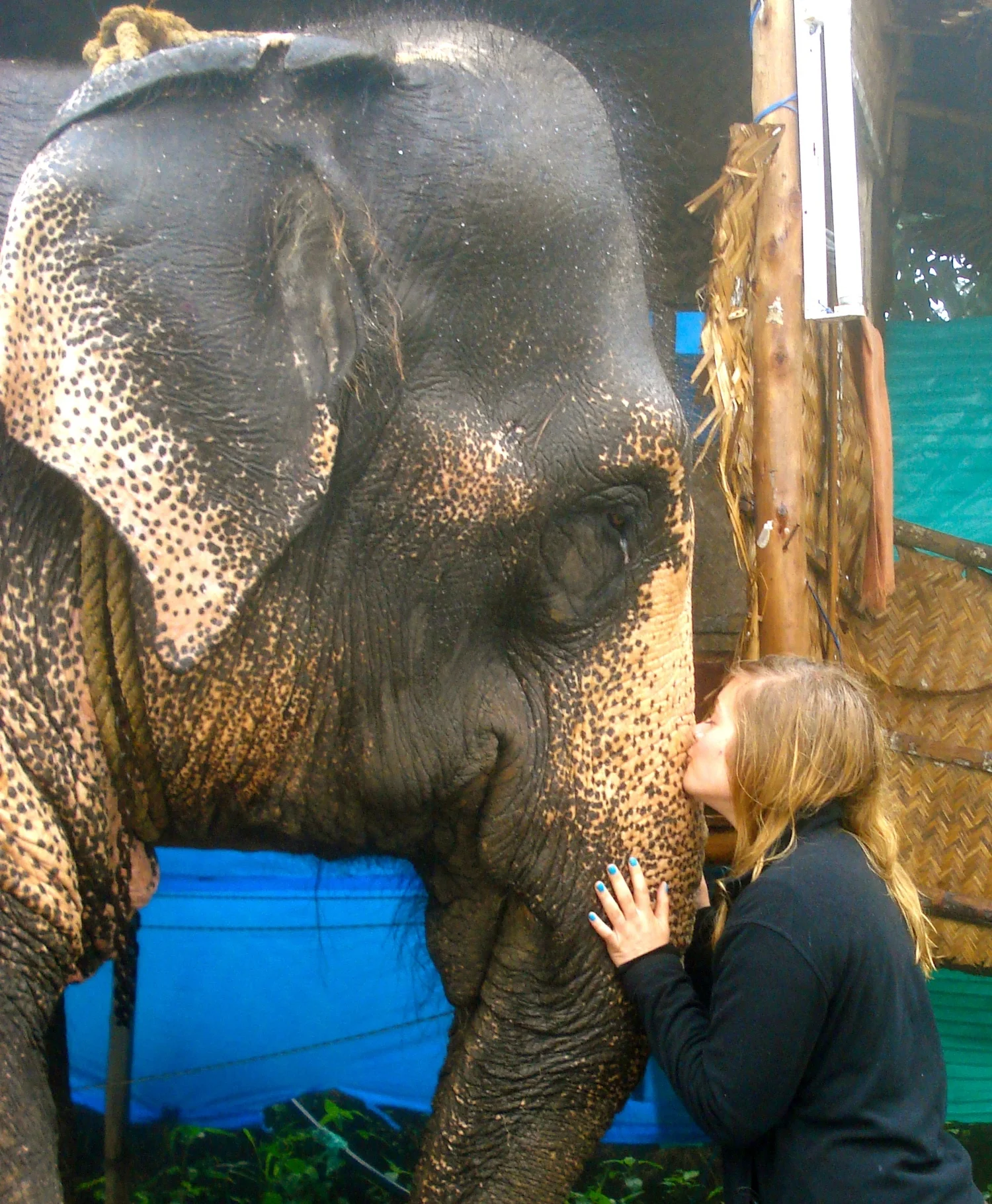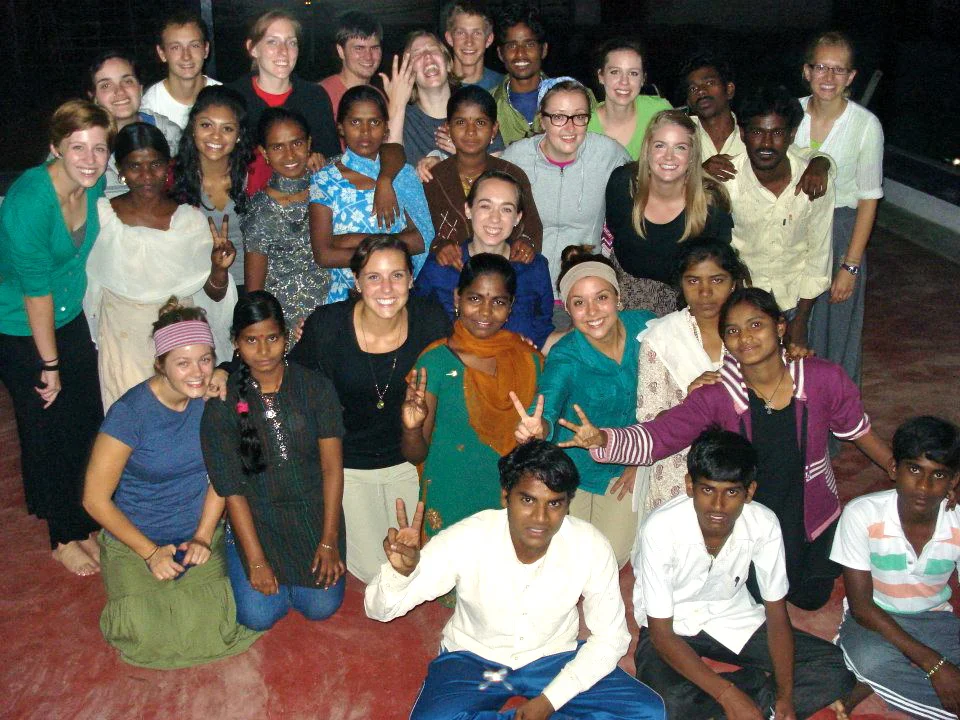Class Letter
/What's new? Tell us.
This was the first line of an email I received from my college last week. I'm a proud alum: I subscribe to (and actually read) the emails that share fundraising goals and construction updates and student stories. I keep up with (and truly care about) what's happening on campus, even though all the current students I knew have already graduated. I keep in touch with professors (more than I can count on one hand), grabbing coffee when I'm back in town or sending e-updates back and forth. So an invitation to contribute to a class letter didn't make me think twice.
We want to hear what's happened in your life this past year. Family changes? New job? Travel opportunities? Hobbies? Send your class agent some news to share with your class.
I certainly had things to share about this last year -- things that I'd feel reasonably comfortable sharing with my graduating class of 700ish people. The standard class letter topics that, from the outside, define my day-to-day life and Instagram and résumé. I work as a Residence Director at a diverse university. I had the opportunity to travel to Minneapolis and Chicago and Denver and Milwaukee and Atlanta. I started graduate school. I live in Portland and get to go on frequent hikes and visit the coast and live in a progressive and socially-conscious and active place, all while spending time with a great community of humans. Sounds awesome, yeah?
And I also had things to share about this year that wouldn't necessarily make it into my school's publication, but still feel like defining victories. They're the small victories, as Anne Lamott calls them. The things that I don't typically name when acquaintances ask, "What's new?" but are usually on my mind more than what I actually say in response to that question. Like the fact that I finally got my Oregon driver's license last winter. And that I had jury duty for the first time! I started drinking coffee and quickly moved to drinking it black. I decided to wait to go to seminary. I started a job that has me interacting with 18-year-olds every day. I moved. I voted for a woman.
I found this request for submissions again last night in my Gmail inbox, after sorting through the bill reminders and LinkedIn notifications. And as I was reading, I didn't think about those big and small victories. I thought about all of the things -- in my own life and in others' -- that wouldn't be shared in this class letter. The things that we intentionally don't say when people ask, "What's up?"
I read the questions again. Family changes? New job? Travel opportunities? Hobbies?
What are the answers that we wouldn't dream of submitting for our class letters?
I thought about people from my college who have gone through a major breakup this year. Or had a death in their family. Or a miscarriage. I thought about the people who have lost their jobs, or who feel like they'll never be able to get their dream job, or feel stuck in jobs that drain their time or energy or souls. I thought about my classmates who travel all the time for work, but hate being away from loved ones, or not feeling grounded in a community, or hate that they're hurting the environment a little more every time they have to board an airplane for that meeting. I thought about my classmates whose lives or budgets or realities don't allow them to go very far from home, who are frustrated with the repetition of their day-to-day lives. I thought about my classmates whose hobbies include Netflix bingeing and social media scrolling and a lot of time spent sitting alone in their expensive apartments, wondering what the hell their twenties are supposed to be about -- because it certainly doesn't feel like it should be this.
My class letter, if I was being honest about this past year, would include some of those things. A breakup that gutted me. A lot of Gilmore Girls in my apartment. A lot of late nights and Saturdays and middle-of-the-nights spent working. It included appointments with a counselor. It included a lot of questions around vocation, worth, relationships, finances, and location. A lot of unpublished writing drafts for this blog.
I've been seeing things like this -- publicly calling out those things that we feel ashamed of -- circulate on my Instagram and Facebook feeds before. Some call them honest résumés, some call them real résumés, some call them failure résumés. They list the musicals that she auditioned for, but never got called back. They list the fellowships that he applied to, but never got an interview for. They list the jobs or internships, the research opportunities or awards, the thing I worked really hard toward or the thing I really wanted that I never got. Basically, they list the things that we wouldn't dream of putting on our résumé.
But by putting in public these things that so often shame us, that make us feel like we don't have our lives together, maybe it allows us to take back these failures or disappointments or heartbreaks and remind ourselves that they're just a part of life. All of the things that we wouldn't dream of putting in a class letter? Every alum from my college (and every human in the world) has a few pages' worth of those, too. We’re not the only ones.
A public letter sent to our entire graduating class of over 700 humans maybe isn't the best place for us to lay out the innermost pages of our souls. But as we submit these life updates, maybe we can still find a way to check in about all those things we won't share there. Maybe the next time a friend or parent or partner asks us, “What’s new?” our answers can be a little more real. They can have a little more truth. They can include a little more of the “here’s what’s hard” and “here’s where I’m hurting.” It takes a lot of effort and bravery to ask that question and want to listen to the honest answer. And it takes a lot of effort and bravery to respond to that question when that answer doesn’t feel picture perfect. It requires us to show up, to ourselves and to each other, as whole people.
So, what's new?




